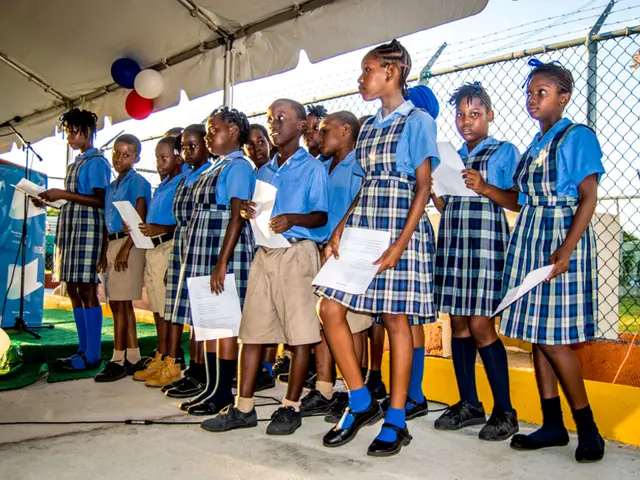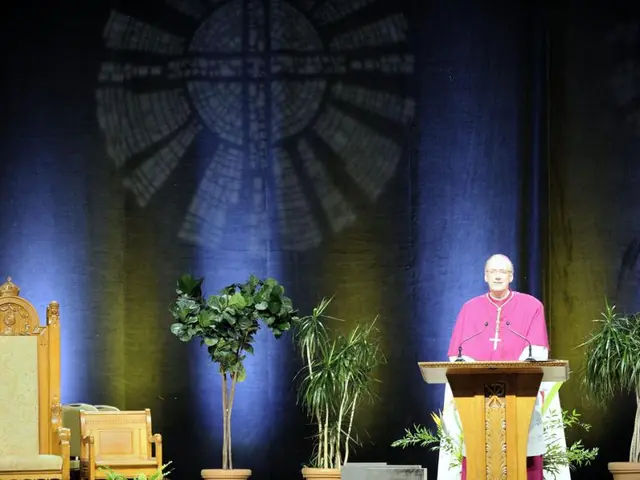University nurses at the University of Iowa allege Regents of engaging in a 'forbidden negotiating tactic' during contract negotiations.
The University of Iowa Health Care (UIHC) and the Service Employees International Union (SEIU) of Minnesota and Iowa are currently engaged in a collective bargaining process, focusing on wage increases, working conditions, and other employment terms.
**Current Collective Bargaining Status**
SEIU Healthcare Minnesota & Iowa has a history of using Interest Based Bargaining and committees to research and propose innovative wage structures like tiered wage schedules. The union's contracts typically cover multiple years, with the most recent agreements extending through mid-2025.
**Key Issues in Dispute**
A major focus of the bargaining process is on wage adjustments, including proposals for tiered wage schedules. The union also seeks improvements in worker orientation and onboarding processes, and better healthcare benefits, safe staffing ratios, workplace safety, and equitable access to union protections.
The union's initial proposal sought a 14 percent raise next budget year and a 12 percent raise the following year, but their latest proposal seeks a 10 percent raise next year and an 8 percent raise the following year. The board, however, has maintained its proposed 1.5 percent and 3 percent raises.
**Controversies and Concerns**
UIHC staff nurses have expressed concerns about low morale due to staffing levels not keeping up with rising patient demand. The board has refused to discuss adding back into the topics that could be negotiated, but aren't required under the law, such as workplace violence protections, retention incentives, differential pay for weekend and overnight shifts, and leave benefits.
In 2017, lawmakers stripped many collective bargaining rights for most public-sector unions, removing topics like vacations, holidays, overtime pay, and health and workplace safety issues as mandatory bargaining topics.
The union started negotiations asking for a significant wage hike, in line with cost of living and inflation, but the board has not budged from its original offer of a 1.5 percent minimum pay raise and 3 percent bump for returning employees in both of the next two years.
Union representatives filed a prohibited practice complaint against the regents with the state's Public Employment Relations Board, accusing them of violating Iowa Code Chapter 20, which aims to promote harmonious and cooperative relationships between government and its employees.
**Looking Ahead**
Neither side has initiated mediation so far. UIHC staff nurses' salaries remain below those of traveling nurses and other Midwestern states like Minnesota and Wisconsin. The average salary for staff nurses in Iowa is below that of other Midwestern states, including Nebraska and Illinois. The average salary for staff nurses in Iowa is approximately $70,000, varying depending on experience.
As the negotiations continue, both parties aim to reach a resolution that addresses the concerns of UIHC staff nurses and aligns with the union's priorities for wage increases, tiered pay systems, orientation improvements, and worker protections. The outcome of these negotiations could have significant implications for the healthcare sector in Iowa and beyond.
The collective bargaining process between the Service Employees International Union (SEIU) of Minnesota and Iowa, and the University of Iowa Health Care (UIHC) is centered around policy-and-legislation issues, as the union seeks better wages, working conditions, and employment terms, including proposals for tiered wage schedules and improvements in general-news topics such as worker orientation, healthcare benefits, safe staffing ratios, and workplace safety. However, the board's initial offered raises have been lower than the union's proposals, leading to controversies and concerns about equitable access to union protections.
The ongoing negotiations between the SEIU and UIHC could have significant implications for the education-and-self-development of healthcare workers, as the outcome may influence wage structures, working conditions, and worker protections not just in Iowa, but potentially across the Midwest region and beyond.




